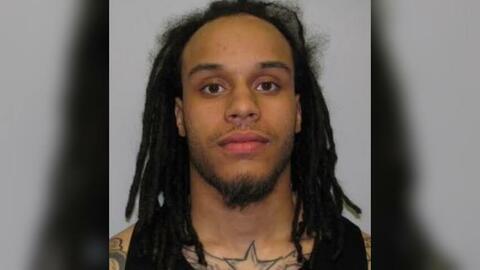Today, a Union County man admitted his role in a scheme to use drones to smuggle contraband, including cell phones and tobacco, into the federal correctional facility at Fort Dix, U.S. Attorney Philip R. Sellinger announced.
According to U.S. Attorney Sellinger Johansel Moronta, 29, of Linden, a former inmate at Fort Dix, pleaded guilty to an information charging him with possessing and obtaining contraband while in prison.
Moronta, who had been released from custody several months after the offense occurred and was on federal supervised release thereafter, also pleaded guilty to violating the terms of his supervised release.
U.S. Attorney Sellinger stated that another former federal inmate, Jason Arteaga-Loayza, previously pleaded guilty to his participation in the scheme as well as to distributing narcotics and was sentenced in September 2021 to 43 months in prison.
Two other men, Adrian Goolcharran, aka “Adrian Ahoda,” aka “Adrian Ajoda,” aka “Adrian Ajodha,” and Nicolo Denichilo, also have been charged with participating in the scheme to use drones to smuggle contraband into Fort Dix prison.
According to the documents filed in this case and statements made in court:
Moronta, an inmate at Fort Dix from April 2018 to March 2019, participated in multiple drone deliveries of contraband into Fort Dix while incarcerated.
Between October 2018 and June 2019, Arteaga-Loayza arranged for Goolcharran, with Denichilo’s assistance, to fly drones over Fort Dix and drop packages of contraband into the prison, where Moronta took possession of the contraband and helped sell it to inmates for a profit.
The packages that Moronta helped to smuggle into FCI Fort Dix included cell phones, cell phone accessories, tobacco, weight loss supplements, eyeglasses, and various other items.
Moronta, from inside the prison, helped coordinate inmate requests for specific items of contraband and assisted in the collection of payments.
Moronta’s conspirators took various steps to prevent BOP officials from detecting and intercepting the contraband.
They planned drone drops during the late evening hours or overnight when it was dark, and the drones were less likely to be seen. Goolcharran, the drone pilot, with Denichilo’s assistance, flew the drones from concealed positions in the woods surrounding the prison.
The lights on the drones were covered with tape to make it more difficult for prison officials to spot the drones against the dark evening sky.
Moronta and his conspirators used cell phones, including contraband phones concealed within the prison, to coordinate the drone drops.
A contraband cell phone used by Moronta while an inmate at Fort Dix contained text messages with Arteaga-Loayza about the collection of profits from the sale of the contraband inside the prison.
Moronta admitted in court that, on October 30, 2018, he received a bag dropped by a drone onto the roof of a housing unit at FCI Fort Dix, which contained contraband tobacco, cellphone chargers and charging cables.
Prison officials recovered that bag which contained 127 bags of Bugler tobacco, ten cell phone chargers and 10 USB charging cables.
Moronta also admitted to possessing a contraband cell phone on that date, which he had used to coordinate the drone drop.
During a search of Arteaga-Loayza’s residence on June 27, 2019, agents found a kitchen closet containing packages of empty cell phone boxes, including a package with empty cell phone boxes that had been shipped to Arteaga-Loayza the day before the drone drop of October 30, 2018, cell phone chargers, empty boxes of SIM cards, and several cell phones.
Moronta also admitted to physically assaulting his girlfriend in June of 2021 while at a gas station in Fort Lee after his release from federal prison.
